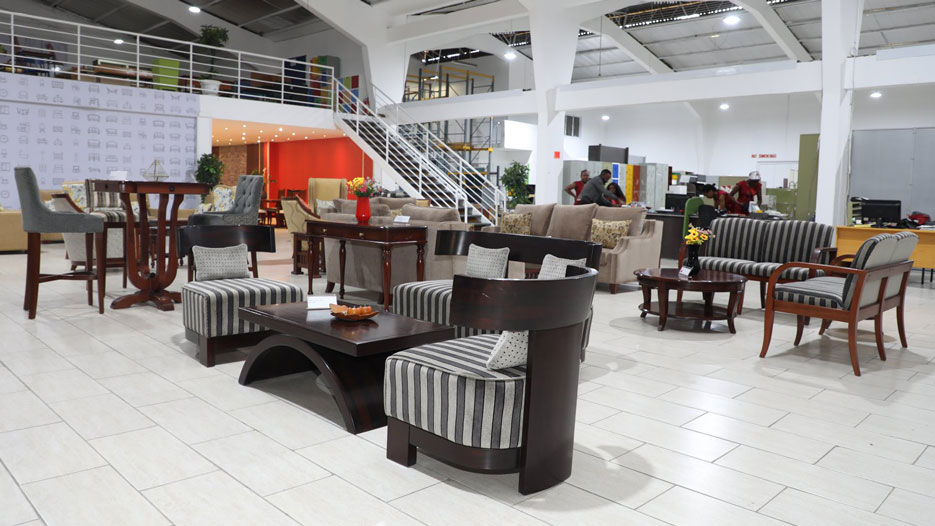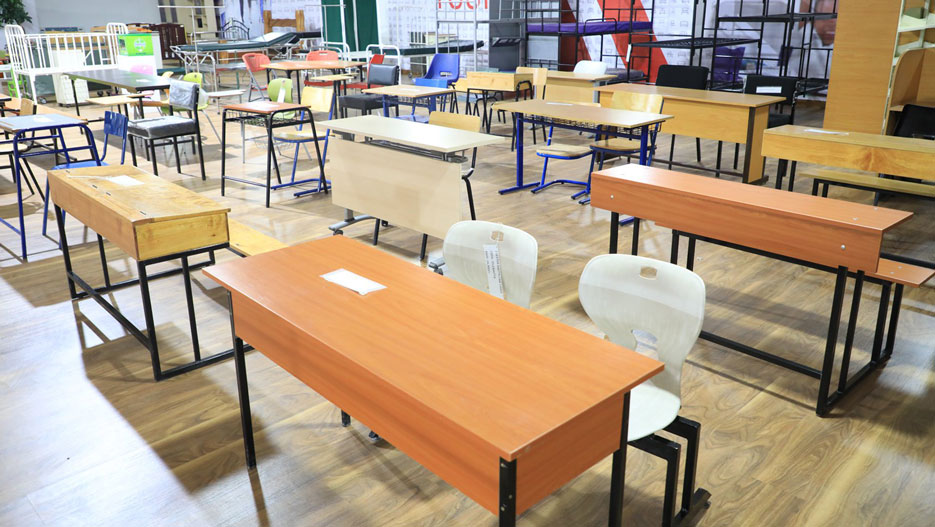History of Ashut: The Number One Manufacturers of Home and Office Hardwood Furniture in Kenya
With more than 40 years of experience in East Africa, Ashut employs over 1,300 people and offers a wide range of products and solutions made from plastic, steel, wood and aluminium, including: home furniture, warehouse racking and storage, supermarket shelving and convenience store fittings, office furniture, staff lockers and filing cabinets, school furniture, hospital furniture, agriculture equipment, as well as industrial drums.

Since its incorporation, Ashut Engineers Ltd has become a leading manufacturer of a wide range of products made from plastic, steel, wood and aluminium. From its origins in a small workshop in Nairobi, Ashut has grown into a corporate entity with an office space of 250,000 square feet, across 10 acres of land. With more than 40 years of experience in East Africa, the company now employs over 1,300 people and offers a wide range of products and solutions, including: luxury home furniture made of hardwood, warehouse racking and storage, supermarket shelving and convenience store fittings, luxury and modular office furniture, staff lockers and filing cabinets, school furniture, hospital furniture, agriculture equipment (wheelbarows and milk cans), as well as industrial drums.
The history of Ashut started in 1980, when a small office along Kirinyaga Road was rented by three partners who had a vision for excellence in craftsmanship. At the pioneer production plant in Kitengela, the first products designed were dormitory beds for the Department of Defense, filing cabinets and shelving for small supermarkets. But with growth came opportunity, and a few years later, the Ministry of Education commissioned Ashut to produce the entire furniture for teachers’ training colleges around Kenya.
In 1995, Ashut acquired property along Lokitaung Road and expanded offices and storage space to further grow the business. The portfolio expanded and Ashut began manufacturing agricultural tools such as shovels, garden rakes, and post office letterbox locks. Soon after, the company ventured into the world of rigid plastics for industrial packaging.

As the agricultural industry grew, Ashut continued to invest in manufacturing of wheelbarrows, milk cans and warehouse racking in 2003. A year after that, Ashut was officially ISO 9001:2000 certified, putting them on the map having achieved top global standards, also resulting in the growth of employee numbers to 500. As part of the growth plan, the manufacturing company acquired property along Nyahera Road off Lunga Lunga Road and moved the production unit from Kitengela to Nyahera Road in 2006.
Between the years 2009 and 2011, Ashut moved all the engineering related production from Lokitaung Road to Nyahera Road, leaving Lokitaung Road as the plastics division. Nyahera Road was a fully fledged engineering division and with the space created at Lokitaung, the plastic divison continued to grow. A year later, Ashut reached a milestone of 1000 employees.
In 2016, Ashut identified an opportunity in luxury home and executive office furniture made from hardwood, and therefore invested in state-of-the-art equipment to manufacture the same. This growth resulted into Ashut employing 1300 people.
As part of the green initiative, in 2017, Ashut pledged to plant 5,000 trees on the slopes of Mount Kenya, participated in cleanup drives on Mount Longonot, Ngong Hills and along Waiyaki Way. As a CSR project, Ashut sponsored a medical camp where 12,782 patients were screened for various eye, ear and throat issues. Out of these, 437 cataract screenings were completed, 127 E.N.T surgeries performed and 2,966 reading and sunglasses were provided free of charge.

Two years later, the company ventured into renewable energy by investing into a roof mounted solar plant for industrial power in the plastics division, in order to further the green initiative plan. The 1400 KW plant was implemented by Spenomatic Solar, a leading EPC provider of solar photovoltaic solutions in East Africa.
In 2020, an elite and modern gallery was created at Ashut. A year later, the company sponsored the Fruity Schools Africa project, an initiative to nourish, sweeten and brighten the future of Kenyan children by planting 41 grafted fruit trees in each of the 337 Schools in Nairobi County.
Last year, Ashut ventured into renewable energy again by investing into a roof mounted solar plant for industrial power, this time in the engineering division.
The company’s vision is that every household or office should have at least one piece of Ashut furniture, as well as continue to employ and empower more people around them.
CONTACT DETAILS
WEBSITE: www.ashut.com
ENGINEERING DIVISION:
Nyahera Road Off Lunga Lunga Road, Industrial Area, Nairobi, KENYA
Tel: 020 2494566 / 2494665
Mob: 0715416844 / 0737556780
Email: enquiries@ashut.com
TIMINGS:
Monday to Saturday: 8am to 4pm
Sunday and Public Holidays: 10am to 4pm
MORE CONTENT
INTERVIEWS:
• Plastics and Furniture Sectors in Kenya: An Interview with Mehul Shah
• Ashut Engineers: Furniture, Drums and Warehouse Solutions in Kenya
VIDEOS:
• Ashut Engineers: Plastic Products, Office and Home Furniture, Racking and Shelving
• Ashut: A Leading Manufacturer of Plastic, Steel, Wood and Aluminium Products in Kenya
LATEST NEWS:
• Ashut Story: The Number One Manufacturer of Home and Office Hardwood Furniture in Kenya
• Ashut and Fruity Schools Africa to Nourish, Sweeten and Brighten the Future of Kenyan Children
• Luxury Furniture Made in Kenya: Discover Ashut’s Exquisite Designs and Craftmanship
• Ashut Engineers: A Leading Provider of Warehouse Racking and Storage Solutions in Kenya
• Ashut Continues to Dominate the Market With its High-End, Locally Produced Classroom Furniture
FAIR USE POLICY
This material (including media content) may not be published, broadcasted, rewritten, or redistributed. However, linking directly to the page (including the source, i.e. Marcopolis.net) is permitted and encouraged.